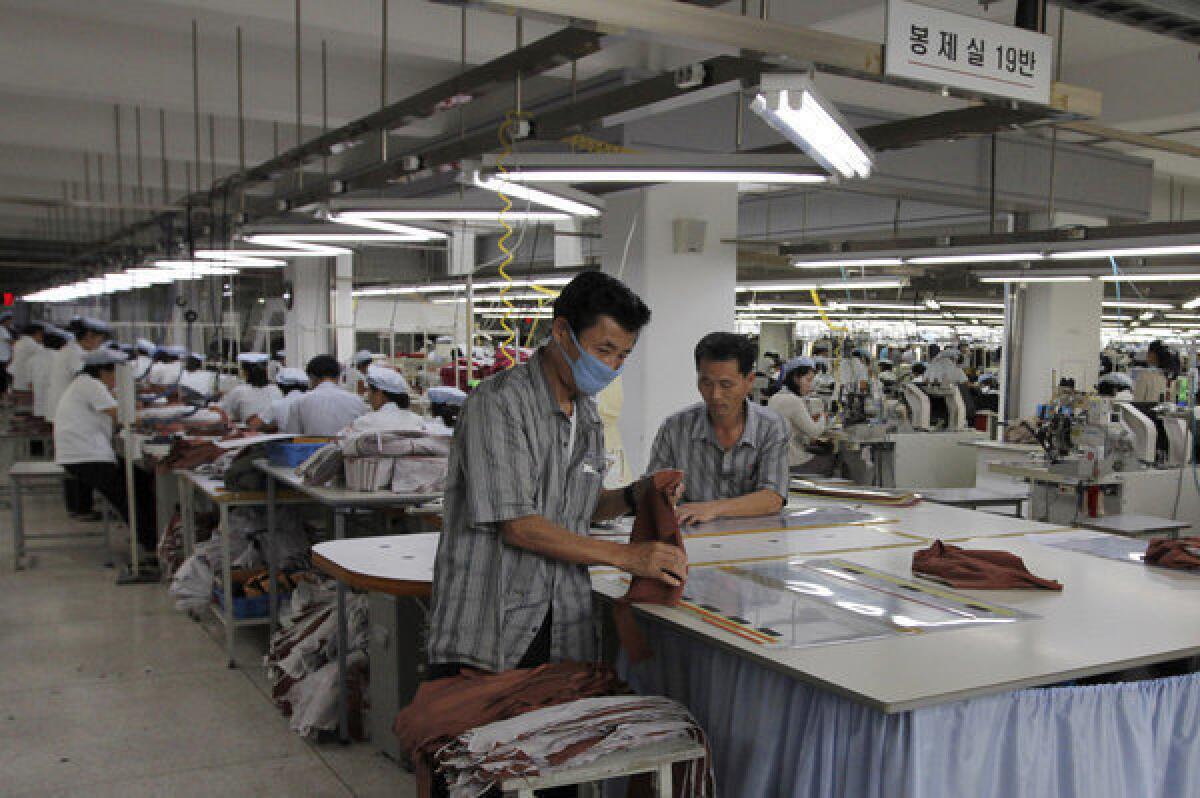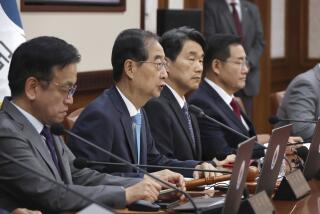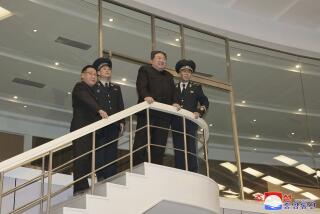North Korea pulls workers from joint industrial park

SEOUL -- A top North Korean official said Monday his nation will suspend the work of its more than 50,000 employees at a joint industrial park that had been one of the proudest examples of cooperation between North and South Korea.
Kim Yang-gon, secretary of Workers’ Party central committee, visited the Kaesong complex just north of the demilitarized zone between the two countries early Monday and later issued a statement that the North would “examine the issue of whether it will allow its existence or close it.”
After weeks of heightened tension in the Korean peninsula, the North last week banned the entry of South Korean workers and raw materials for the industrial zone. About 475 South Korean managers remained at the site, though it was not immediately clear Monday for how long.
“North Korean workers left work at 6 o’clock today as they usually do. We’ll know tomorrow whether they will come to work,” a South Korean manager told the Associated Press. He requested anonymity because he was not authorized to speak with the media.
The North has issued a series of threats over the past few weeks since the United Nations imposed fresh sanctions on the regime and the U.S. and South Korea began annual military exercises. The sanctions followed the North’s successful launch of a three-stage rocket and test of a nuclear weapon, both steps many nations fear will lead to development of a deliverable nuclear warhead.
The Kaesong industrial zone has played a significant role in the past toward efforts to seek peace between the two Koreas, one expert noted.
“The North may have thought that banning South Korean workers would have some effect, which it didn’t,” said Yang Moo-jin, a professor at the University of North Korean Studies in Seoul. “So now they are trying to show that they really can stop the operation by taking such moves.”
Yang added the North has left a door open for talks by saying the situation would depend on the attitude of the South Korean government.
A trade association for South Korean firms in the complex told local media that they would seek countermeasures after figuring out the North’s intentions and expressed worries over the long-term impact of pulling out the North Korean workers. The South Korean Unification Ministry issued a statement expressing “deep regret” over the North’s decision.
The industrial zone project started in 2000 after an agreement to develop a business park was negotiated between North Korea and Hyundai-Asan, a branch of the South Korean conglomerate Hyundai group. The site opened for businesses in 2004.
For nine years, the industrial park has weathered other storms between the Koreas, including the 2010 North Korean shelling of a South Korea island that killed four people.
Currently 123 businesses operate in the zone, providing a significant source of North Korea’s hard currency -- nearly $90 million a year, according to the Unification Ministry.
ALSO:
Bomb blast rocks Damascus; at least 15 killed
Thatcher to receive state funeral at St. Paul’s Cathedral
Margaret Thatcher, Britain’s first female prime minister, dies at 87
More to Read
Sign up for Essential California
The most important California stories and recommendations in your inbox every morning.
You may occasionally receive promotional content from the Los Angeles Times.










